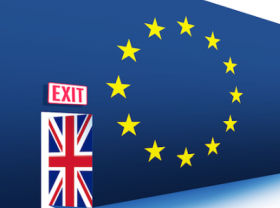Analytics, Economics, EU – Baltic States, Financial Services, Legislation
International Internet Magazine. Baltic States news & analytics
Friday, 19.04.2024, 18:44
Brexit: the foreign policy implications
 Print version
Print version |
|---|
ECFR
Director Mark Leonard, said: “The
people have spoken. But yesterday’s vote to leave the European Union is only
the beginning of what will be a long and uncertain process of divorce. David Cameron’s
statement made it clear that the UK is unlikely to be in a position to start
negotiations before his successor is in place in October.
“There
are many decisions in the coming days that will have major implications for the
future of both the United Kingdom and the European Union.
“For the UK, there is an immediate risk to the British economy and a long-term threat to British influence. Today’s financial turmoil reflects a fear of a loss of access to the EU market that could scare off investors and potentially do critical damage to strategic sectors like financial services. In the longer term, a failure to create an effective economic and political relationship with the EU will doom the UK to relative poverty and international obscurity.
“For the EU, Britain’s exit risks reinforcing a cycle of disintegration. Member states like Poland and Hungary, as well as opposition parties like Marine Le Pen’s Front National, could launch copy-cat moves. Others such as Ireland could be economically destabilised. Internationally, the loss of the EU’s second-biggest economy will be a serious blow to the EU’s standing and reputation. If other crises – a euro crisis, a Schengen crisis, a Trump presidency – get layered on top of Brexit, there is a real danger of collapse.”
The ECFR says Europeans and British policymakers need to move quickly to contain these risks, which they set out as follows:
In the EU:
• EU leaders need to keep the rest of the EU together. They should lay out a vision for an inclusive Europe that can reform itself and that can combine integration on key areas with a sensible balance of powers and a greater role for practical projects among different sub-groups of nation states. This could also help Europeans create a framework to engage other non-EU states such as Turkey on priorities like the refugee crisis.
• The EU should avoid big integration initiatives. There will be a temptation to aim for a leap forward in integration once Britain has left. But launching a big initiative could trigger a counter-reaction from member states that have Eurosceptic parties, and those, such as Poland, that are worried the EU may become unbalanced towards a protectionist, integrationist French-German position.
The EU should work to:
Keep its links with Britain alive – by distinguishing between areas where all will benefit and those where being too accommodating to the UK could fuel contagion.
It is clear that the single market cannot survive if countries are allowed to opt out of large elements of the acquis. At the same time, all member states have links to Britain, but some are more exposed than others. Trade with Britain represents the equivalent of 12 percent of Ireland’s GDP, while the fragile peace settlement in Northern Ireland will be jolted by new border controls.
Poland has 700,000 citizens living in the UK and fears negative consequences for its currency if there is a devaluation of the pound and turbulence on the financial market. Cyprus and the Netherlands have extensive links to the UK financial sector.
• The member states with the closest links to Britain will try to keep these alive and the EU should seek to accommodate them in ways that do not undermine the fabric of the rest of the EU.
In the UK:
• The British government and the Bank of England should seek to reassure the markets to mitigate the immediate economic impact.
• The British government should avoid unilateral moves that could further destabilise the EU or damage other member states. The government should be as constructive as possible. Taking an aggressive stance or making threats would disadvantage everyone.
• The British government should pursue an existing partnership model, rather than trying to carve out a completely new relationship. A “Norway-plus” arrangement appears most sensible. It is unlikely that there will be appetite among the remaining member states to diverge from existing models. By trying to come up with a completely new model, the UK would end up paying a much higher price and negotiations could drag on, meaning years of instability. All 27 member states have to agree on the deal and there would still be a risk that it could be rejected in a member state referendum.








 «The Baltic Course» Is Sold and Stays in Business!
«The Baltic Course» Is Sold and Stays in Business!

